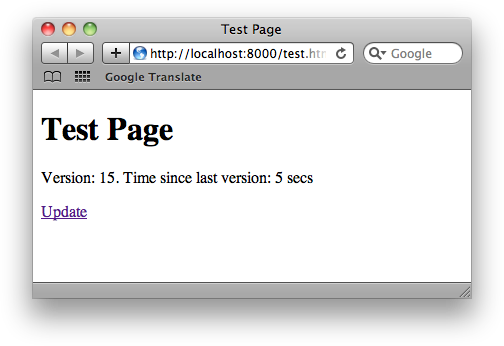Export Options
This page describes the additional options available when exporting URLs in CL-HTTP.
Specifying the expiry time
You can supply an :expiration parameter to export-url. This allows browsers to serve up a cached version of the page, rather than needing to fetch a fresh copy from the server, which improves efficiency.
If you are dynamically generating a page with changing information you will want to specify that the page expires immediately, so that the browser always fetches an up to date version. If however the page is a static page of text which seldom changes, you can improve efficiency by specifying an expiration time of several minutes or even hours.
The following options are available:
| Option | Description |
|---|---|
| :no-expiration-header | No EXPIRES header is issued. |
| :never | EXPIRES headers indicate one year from now. |
| :time | EXPIRES header indicates a universal time. |
| :interval | EXPIRES headers indicate now plus an interval. |
| :function | EXPIRES headers indicate a universal time computed by applying function to the URL. The function should return a universal time for use in the EXPIRES header or nil, in which case no EXPIRES header is issued. |
The most usual options are:
:expiration '(:no-expiration-header)
for a dynamic page that should never be cached, or:
:expiration `(:interval ,(* 15. 60.))
to allow caching for 15 minutes for a fairly static page that changes infrequently.
Example
The following example illustrates the use of the :expiration parameter:
(defparameter *version* 0) (defparameter *last-fetch* 0)
(defmethod display-test-page ((url http-url) stream)
"Routine to test export options."
(let ((title "Test Page")
(now (get-universal-time)))
(with-successful-response (stream :html :expires (expiration-universal-time url))
(with-html-document (:declare-dtd-version-p :transitional :stream stream)
(with-document-preamble (:stream stream)
(declare-title title :stream stream))
(with-document-body (:stream stream)
(with-section-heading (title :stream stream)
(with-paragraph (:stream stream)
(format stream "Version: ~a. Time since last version: ~a secs"
(incf *version*) (- now *last-fetch*))))
(setq *last-fetch* now)
(note-anchor "Update" :reference "/test.html" :stream stream))))))
we export the page with an :expiration parameter of 5 seconds:
(export-url #u("/test.html" :host "localhost" :port 8000)
:computed
:response-function 'display-test-page
:expiration `(:interval 5))
Note that the call to with-successful-response needs to pick up the :expiration parameter and supply it to the :expires keyword using the function expiration-universal-time.
This displays the following page:
Clicking the Update link has no effect until the 5 second expiration time has elapsed, because the browser uses the cached version of the page.
Now change the :expiration parameter in export-url to:
:expiration '(:no-expiration-header)
Now the Update link updates the page whenever it is clicked.
blog comments powered by Disqus

